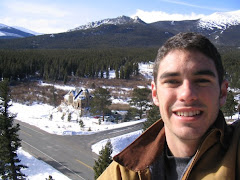This brings us to a second and related misunderstanding. Agape's object is always the concrete individual, not some abstraction called humanity. Love of humanity is easy because humanity does not surprise you with inconvenient demands. You never find humanity on your doorstep, stinking and begging.
Jesus commands us to love not humanity but our neighbor, all our neighbors, the real individuals we meet, just as he did. He died for me and for you, not for humanity. The Cross has our names on it, not the name "humanity". When Jesus called himself the Good Shepherd, he said he "calls his own sheep by name" (Jn 10:3). The gospel comes to you not in a newspaper with a Xeroxed label, "Dear Occupant", but in a handwritten envelope personally addressed to you, as a love letter from God to you alone. One of the saints says that Jesus would have done everything he did and suffered everything he suffered even if you were the only person who had sinned, just for you. More than that, he did! This is no " if" ; this is fact. His loving eyes saw you from the Cross. Each of his five wounds were lips speaking your name.
Grandfathers are kind; fathers are loving.
A third, related, misunderstanding about love is to confuse it with kindness, which is only one of its usual attributes. Kindness is the desire to relieve another's suffering. Love is the willing of another's good. A father can spank his child out of love. And God is a father.
It is painfully obvious that God is not mere kindness, for he does not remove all suffering, though he has the power to do so. Indeed, this very fact-that the God who is omnipotent and can at any instant miraculously erase all suffering from this world deliberately chooses not to do so-is the commonest argument unbelievers use against him. The number one argument for atheism stems from the confusion between love and kindness.
The more we love someone, the more our love goes beyond kindness. We are merely kind to pets, and therefore we consent that our pets be put to death "to put them out of their misery" when they are suffering. There is increasing pressure in America to legalize euthenasia (so far only Nazi Germany and now Holland have ever legalized euthenasia), and this evil too stems from the confusion between love and kindness. We are kind to strangers but demanding of those we love. If a stranger informed you that he was a drug addict, you would probably try to reason with him in a kind and gentle way; but if your son or daughter said that to you, you would probably do a lot of shouting and screaming.
Grandfathers are kind; fathers are loving. Grandfathers say, "Run along and have a good time"; fathers say , "But don't do this or that." Grandfathers are compassionate, fathers are passionate. God is never once called our grandfather, much as we would prefer that to the inconveniently close, demanding, intimate father who loves us. The most frequently heard saying in our lives is precisely the philosophy of a grandfather: "Have a nice day." Many priests even sanctify this philosophy by ending the Mass with it, though the Mass is supposed to be the worship of the Father, not the Grandfather.
Saturday, February 14, 2009
Subscribe to:
Post Comments (Atom)




No comments:
Post a Comment